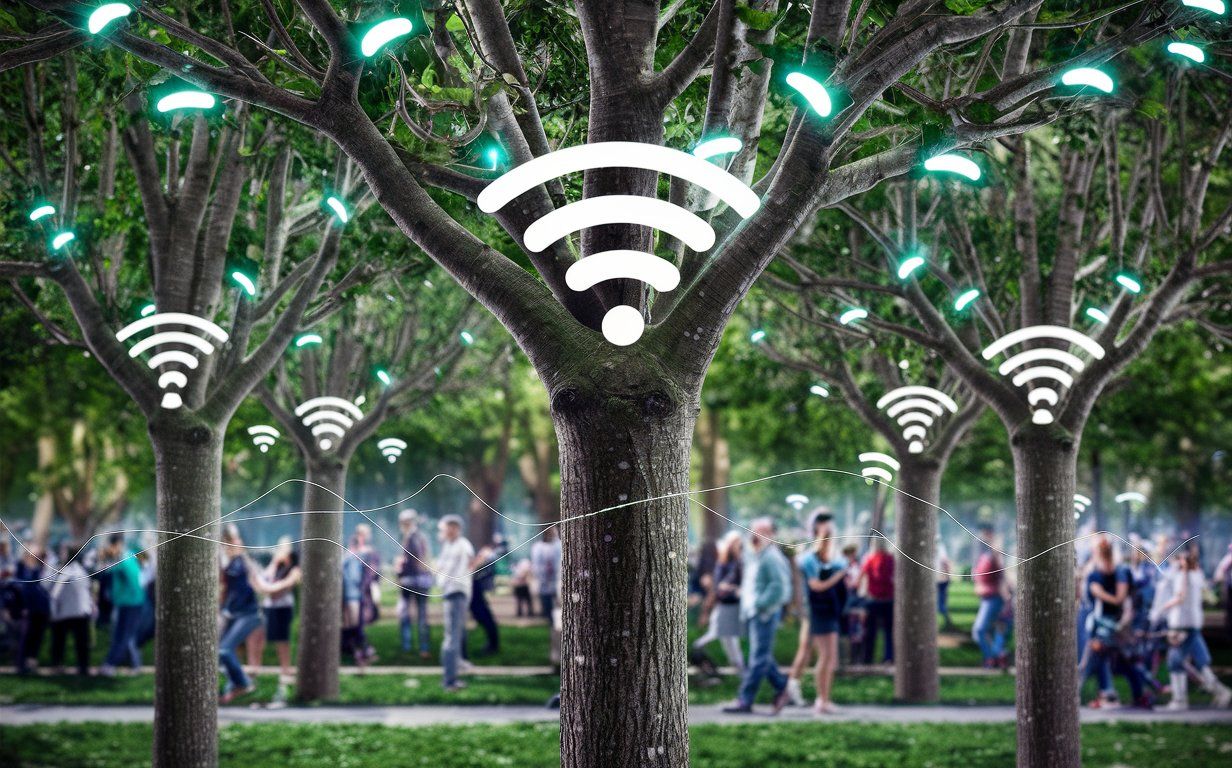Follow us on Google News (click on ☆)
Biotechnology researchers have announced the development of genetically modified trees capable of functioning as Wi-Fi access points, transmitting connections from one to another. This ambitious project, at the intersection of technology and nature, promises to revolutionize the way we stay connected, while respecting our planet.

The idea is based on solid scientific roots. Through a process of genetic modification, trees are equipped with bio-sensors and tiny devices capable of capturing and redistributing Wi-Fi signals. This advancement is the fruit of several years of research in the fields of plant genetics and wireless technologies.
The scientists behind this project explain that these Wi-Fi trees could not only offer extensive internet coverage, even in the most remote areas but also contribute to the fight against deforestation by giving new ecological and economical value to trees.
The installation of these Wi-Fi trees would not require the felling of forests or the alteration of existing natural landscapes. On the contrary, the project encourages the planting of modified trees in urban and rural areas, thus increasing green spaces while providing an essential service. Moreover, these trees would contribute to the reduction of CO2 in the atmosphere through photosynthesis, thereby fighting climate change.
The implications of this innovation are vast. For rural or remote areas, where internet access can be limited or nonexistent, Wi-Fi trees could represent a sustainable solution to reduce the digital divide. Children and adults in these regions would have better access to online education, information resources, and economic opportunities. In urban areas, these trees could complement existing Wi-Fi infrastructures, offering improved connectivity while enriching green spaces.

A French internet provider is already considering a Bonzaï-Box (or BBox)
However, the project also raises significant ethical and ecological questions. Genetically modifying trees is a subject of intense debate, with concerns regarding potential impacts on local ecosystems and biodiversity. The researchers insist that comprehensive studies and environmental tests are underway to ensure that Wi-Fi trees are beneficial and safe for their environment.
In addition, there are concerns regarding data security and privacy protection. The project's designers assert that the technology integrated into these trees will adhere to the strictest security standards, with advanced encryption from root to leaf to protect user communications.
As we move forward in the 21st century, the promise of a more connected and greener world seems more attainable than ever. Wi-Fi trees could be a giant leap in this direction, offering a vision of a future where technology not only serves our immediate needs but also contributes to the health of our planet. Their development and deployment will be followed with keen interest, as they represent an innovative fusion of nature and technology for the benefit of humanity and the environment.
This research on Wi-Fi trees was published in the prestigious scientific journal Rature, on April 1, 2024.